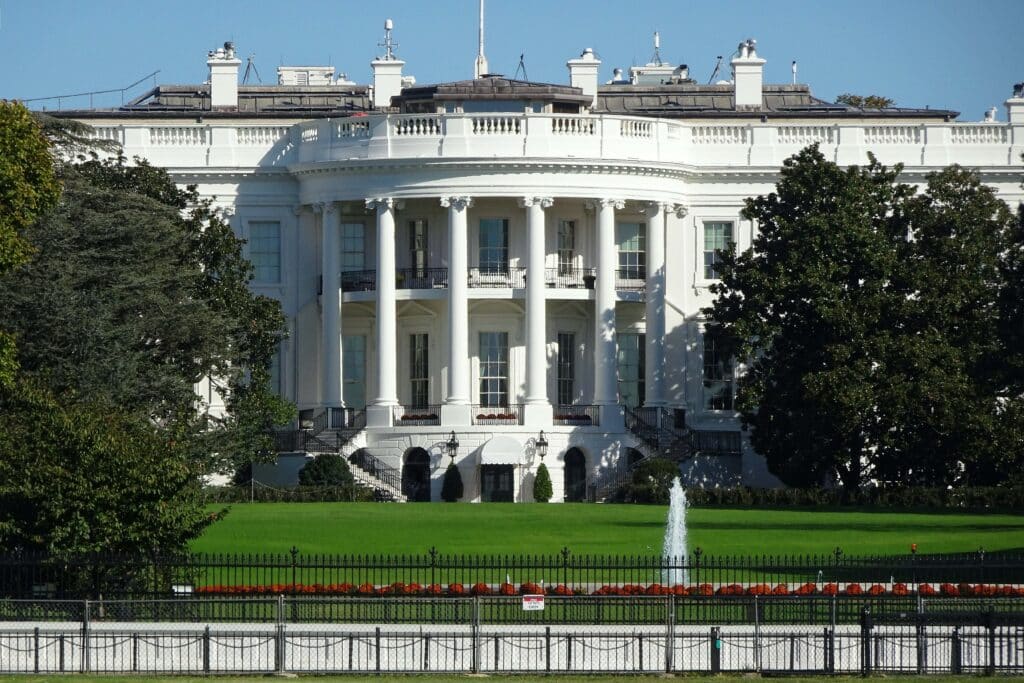Does the Presidential Election Affect Mortgage Rates?
Wondering how the 2024 election year will affect mortgage rates?
While you hear it often, the 2020 election cycle really was one of the most turbulent and challenging elections in recent history. There was heightened political attention from the national level all the way down to local elections. We can only anticipate similar in November 2024.
But what does this uncertainty mean for mortgage rates?
We’ll start by taking a look at the role of the Federal Reserve (“The Fed”) and its relationship with the president to fully understand its influence on mortgage rates.
The Fed and Mortgage Rates
The interest rate is the part of a mortgage that gets the most attention. A mortgage rate is how lenders are able to assume the risk of lending the principal amount.
Often, you’ll hear about mortgage rates in relation to the Federal Reserve. When looking at the effects of an election on mortgage rates, it’s important to realize: the Fed doesn’t set mortgage rates. Other major factors like inflation rates and the price of US treasuries—which have been in the news of late—will dictate the housing market’s interest rates nationally.
Instead, as part of that monetary policy, the Federal Reserve sets a target for the federal funds rate. It uses various open market operations to guide market rates closer to that target.
The Fed and The President
The Federal Reserve conducts the nation’s monetary policy. It has a significant degree of freedom compared to many other government agencies.
While the Fed does have a great degree of independence, it doesn’t act in a political vacuum. Each of the seven members of the Board of Governors is appointed by the president and confirmed by the Senate. Their 14-year terms stagger such that the next president will have the opportunity to appoint at least two new members during their term.

The Fed and The Election
Election years always bring a certain degree of uncertainty. The 2020 election faced this on unparalleled levels. Changes in the market affect rates. Historically, the market does tend to respond to uncertainty.
Which Factors Impact Mortgage Interest Rates?
The home buying process involves many numbers, but few have as much of an impact on the buyer as mortgage interest rates.
With that in mind, let’s take a look at what has historically happened with mortgage rates during election years.
Historical Market Analysis
We’ll start with a broad-strokes look at the market as a whole, using the Dow Jones Industrial Average, as recorded in the Stock Trader’s Almanac since 1833.
On average, the DJIA grows 10.4% in years prior to an election. Compare that to years of presidential elections, where growth slows to an average of 6%. This reflects a more hesitant attitude, largely created out of election uncertainty.
What about after an election? On average, the first year of a presidency shows a 2.5% growth rate in the DJIA. In the second year, that rises to 4.2%.
So how does that typical market cycle translate into mortgage rates?
Historical Mortgage Rate Analysis
Now let’s look at how an election has historically affected mortgage rates. We did the digging and the math, and here’s what we found.
For our purposes, we focused on 30-year fixed-rate averages, specifically for the period immediately before and after an election. We looked through the archives of the Primary Mortgage Market Survey from Freddie Mac as far back as they go, to 1971.
| Election Cycle | Starting Rate | Ending Rate | Rate Effect |
| Nov-Dec 1972 | 7.43% | 7.44% | +0.10% |
| Nov-Dec 1976 | 8.81% | 8.79% | -0.02% |
| Nov-Dec 1980 | 14.21% | 14.79% | +0.58% |
| Nov-Dec 1984 | 13.64% | 14.18% | -0.46% |
| Nov-Dec 1988 | 10.27% | 10.61% | +0.34% |
| Nov-Dec 1992 | 8.31% | 8.21% | -0.10% |
| Nov-Dec 1996 | 7.62% | 7.60% | -0.02% |
| Nov-Dec 2000 | 7.75% | 7.38% | -0.37% |
| Nov-Dec 2004 | 5.73% | 5.75% | +0.02% |
| Nov-Dec 2008 | 6.09% | 5.29% | -0.80% |
| Nov-Dec 2012 | 3.66% | 3.62% | -0.04% |
| Nov-Dec 2016 | 3.75% | 4.20% | +0.45% |
| Nov-Dec 2020 | 3.07% | 3.10% | +0.03% |
| Nov-Dec 2024 | TBD | TBD | TBD |
Does a Presidential Election Affect Mortgage Rates?
There’s not enough of a change, using historical data, to suggest that the presidential election has a significant impact on mortgage rates in either direction. In the recent election cycles when there is an incumbent president seeking a second term (2020, 2012, 2004, and 1996) the mortgage rates have not swung as much. It is reasonable to assume this trend may continue in 2024. However, the uncertainty that we face outside of the housing market could flip this narrative.
Recovering from the COVID-19 pandemic, the Fed injected stimulus into the economy. We saw new, record-low mortgage rates and, currently, higher mortgage rates. We recommend focusing on the rates we have today and looking at upcoming changes based on trends.
At Chris Doering Mortgage, we use our knowledge of the market and industry experience to act as advisors to help you plan your next steps. Talk through your goals and discuss opportunities for you.
